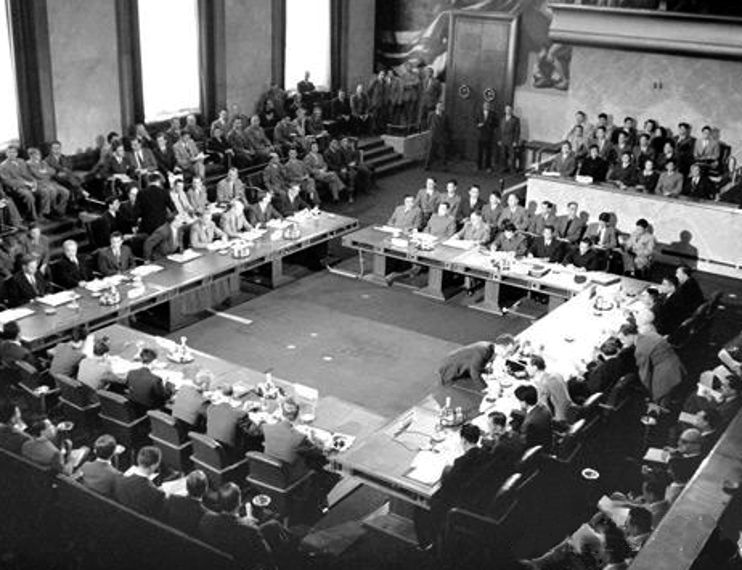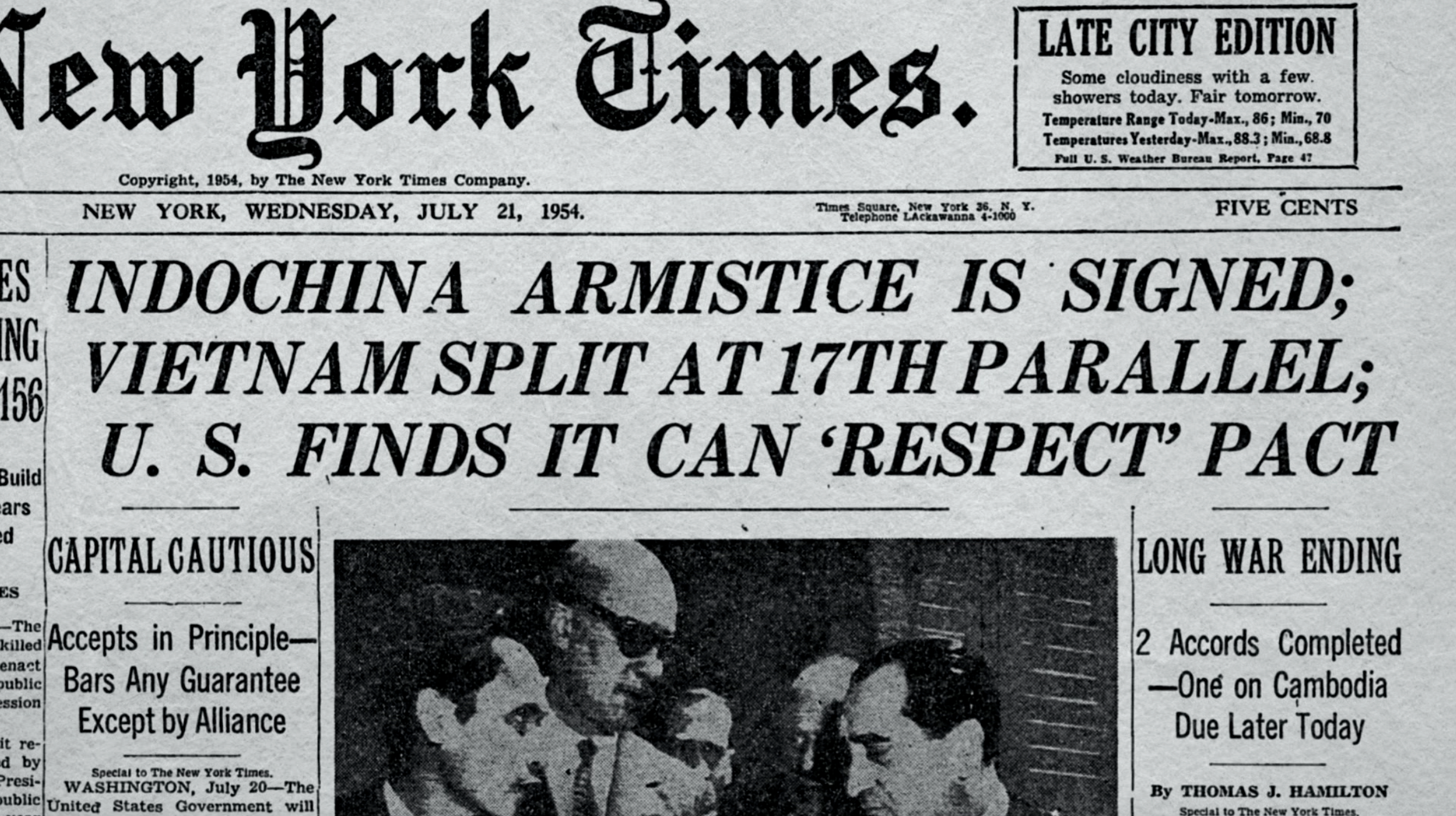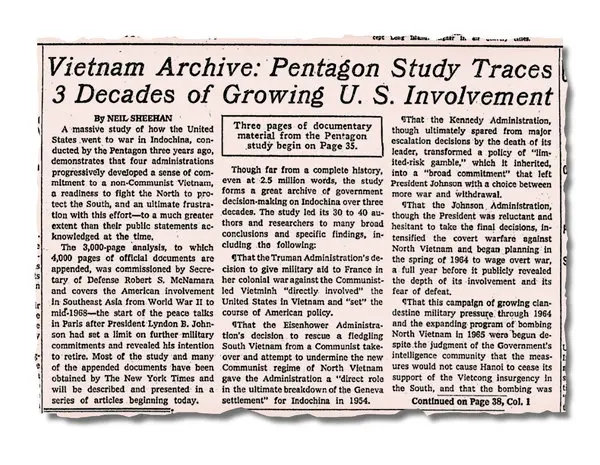VENTURING INTO VIETNAM
The Vietnam War: A Turning Point
for Black American Rights
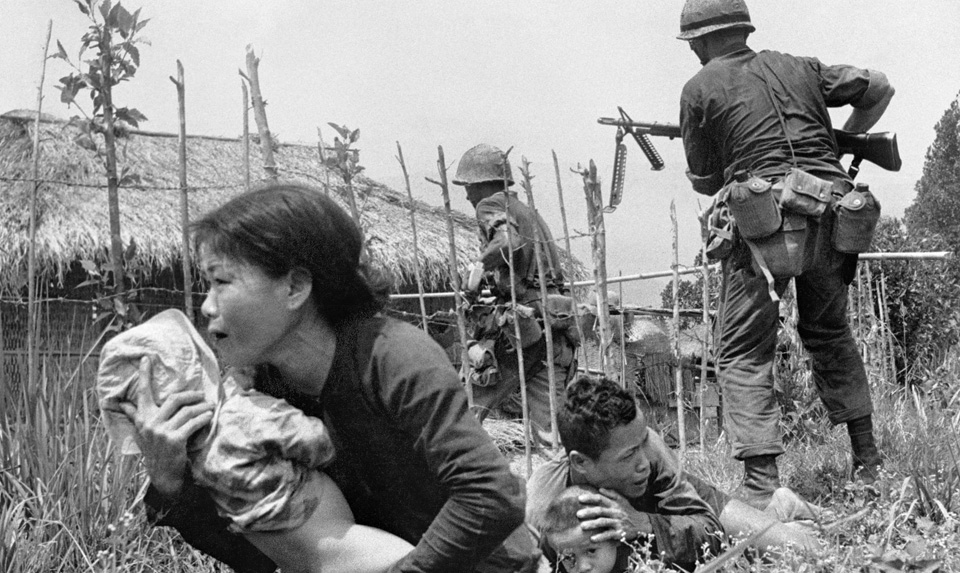
Eddie Adams. "Under sniper fire, a Vietnamese woman carries a child to safety as U.S. marines storm the village of My Son, near Da Nang, searching for Vietcong insurgents" April 01, 1965. Retrieved from Associated Press
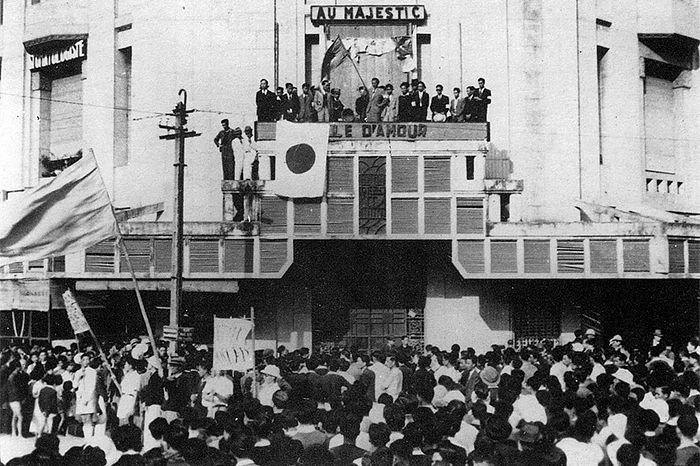
"The IJA captures Hanoi" Circa. 1940 Retrieved from Saigoneer
“For nine years…”
In the 1940s and 1950s, Vietnam was embroiled in the Indochina wars, fighting for freedom against colonial rule first under Japan and then France.
“[M]eeting eighty percent of the French war costs,” the American government provided them substantial support, but France would end their rule after a devastating defeat at the Battle of Dien Bien Phu in May 1954, prompting negotiations at the Geneva Conference in June 1954.
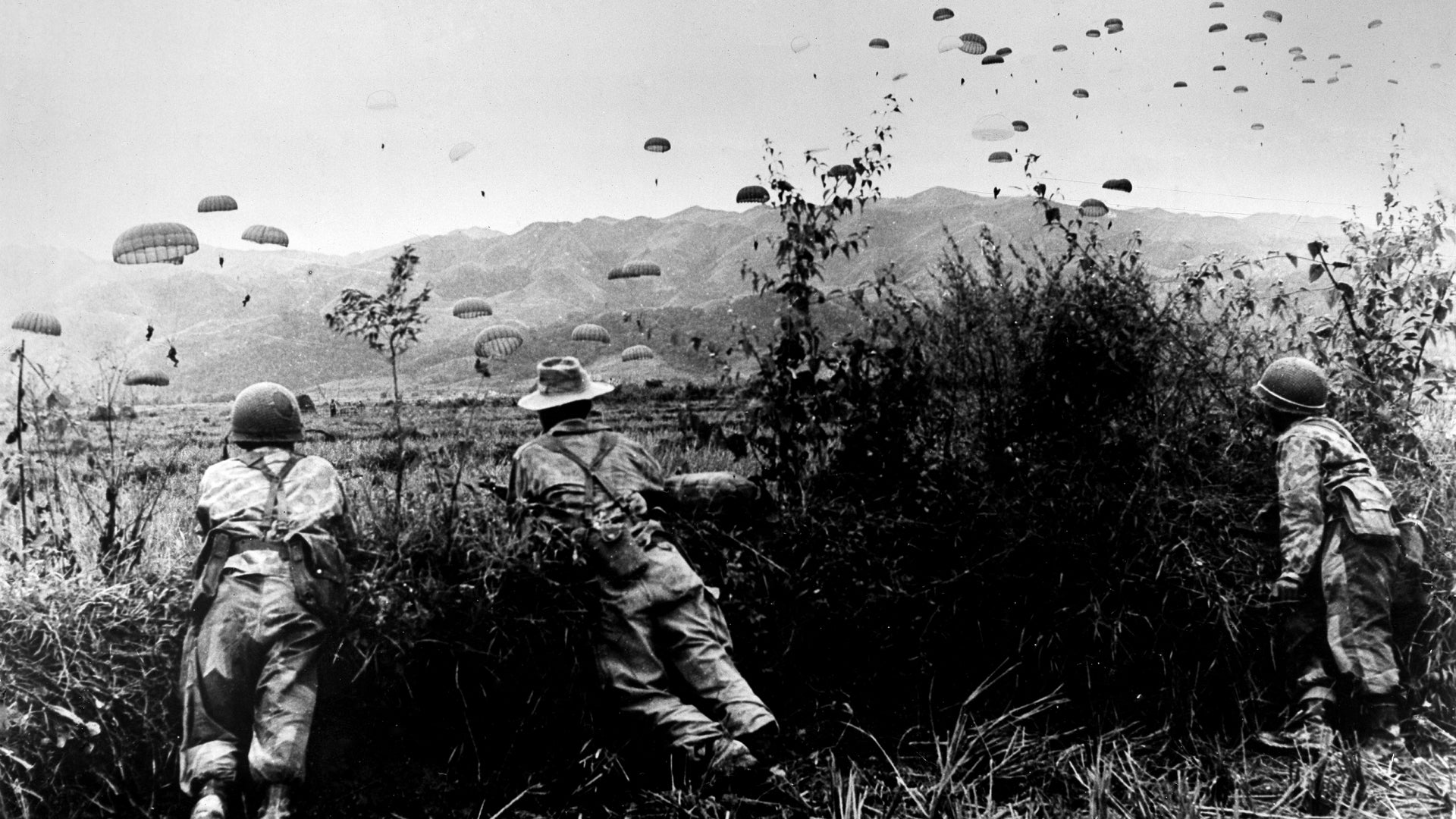
“French paratroopers dropping on Dien Bien Phu, November 1953.” November 26, 1953. Retrieved from Universal Images Group
"For nine years following 1945 we denied the people of Vietnam the right of independence. For nine years we vigorously supported the French in their abortive effort to recolonize Vietnam. Before the end of the war we were meeting eighty percent of the French war costs. Even before the French were defeated at Dien Bien Phu, they began to despair of their reckless action, but we did not. We encouraged them with our huge financial and military supplies to continue the war even after they had lost the will. Soon we would be paying almost the full costs of this tragic attempt at recolonization." Martin Luther King Jr., Beyond Vietnam: A Time to Break Silence, 1967.
The Cold War Context
"We can help them, we can give them equipment, we can send our men out there as advisers, but they have to win it, the people of Vietnam, against the Communists... But I don't agree with those who say we should withdraw. That would be a great mistake... [The United States] made this effort to defend Europe. Now Europe is quite secure. We also have to participate—we may not like it—in the defense of Asia." President John F. Kennedy
The Geneva Accords divided Vietnam at the 17th parallel, creating communist North Vietnam and non-communist South Vietnam, with a provision for national reunification elections after two years. Fearing the potential outcomes of communist dominance amid the Cold War, the United States did not sign the Accords and covertly supported South Vietnam.
"We believe the Communists will consolidate control over North Vietnam with little difficulty... In any event, from its new territorial base, the Viet Minh will intensify Communist activities throughout Indochina." Post-Geneva Outlook in Indochina, Section 2
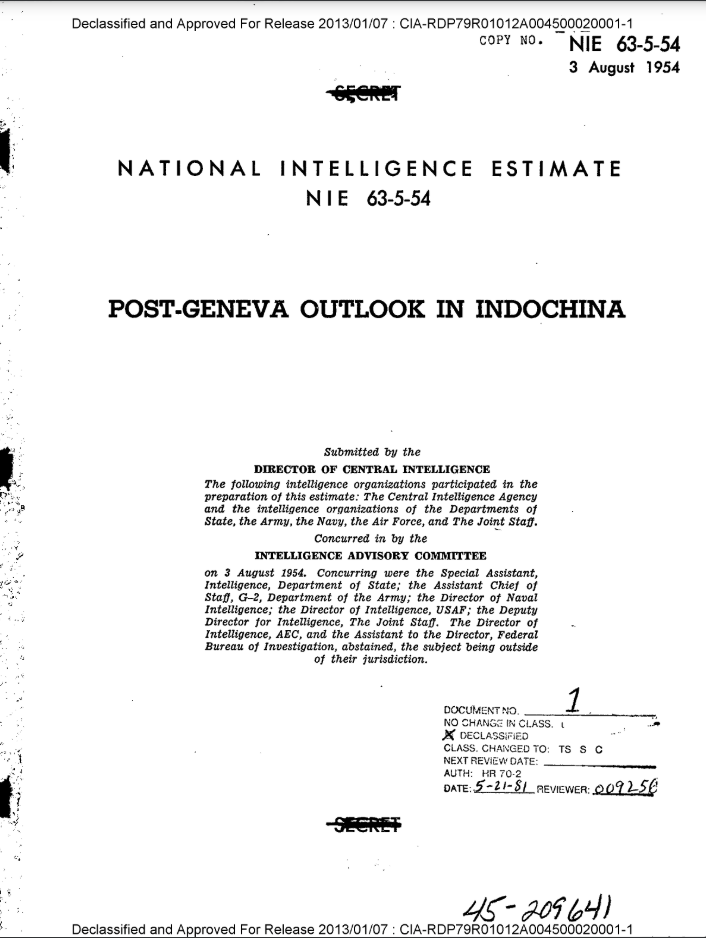
"POST-GENEVA OUTLOOK IN INDOCHINA." August 3, 1954. Retrieved from the National Intelligence Estimate.
"I believe that within the next century, future generations will look with dismay and great disappointment upon a Congress which is now about to make such a historic mistake." Senator Wayne Morse, 1964
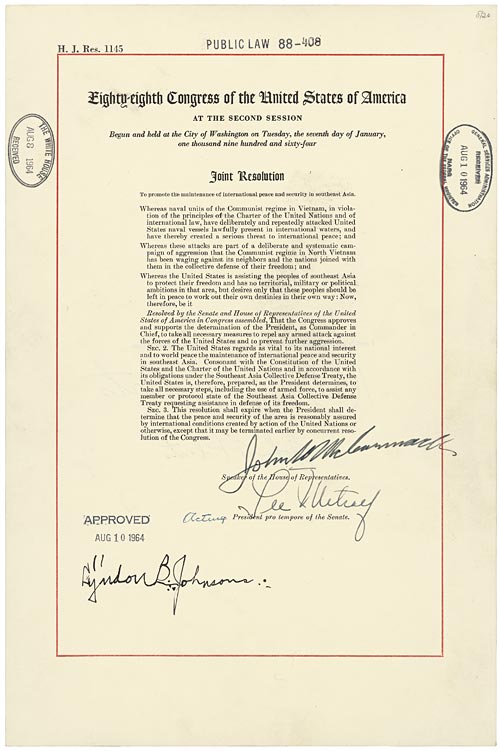
“Tonkin Gulf Resolution” August 7, 1964. Retrieved from the National Archives and Records Administration
Fact or Fiction?
Tensions escalated over the next ten years. In August 1964, the United States claimed that Northern Vietnamese patrol boats had attacked American destroyers in two separate attacks.
"On the first attack, the evidence would be pretty good. On the second one the amount of evidence we have today is less than we had yesterday. This resulted primarily from correlating bits and pieces of information eliminating double counting and mistaken signals. This much seemed certain: There was an attack. How many PT boats were involved, how many torpedoes were fired, etc. - all this was still somewhat uncertain. This matter may be of some importance since Hanoi has denied making the second attack." National Security Advisor McGeorge Bundy, 1964
This incident, known as the Gulf of Tonkin incident, led to the Gulf of Tonkin Resolution and intensified direct American involvement in Vietnam.
"But repeated acts of violence against the Armed Forces of the United States must be met not only with alert defense, but with positive reply. That reply is being given as I speak to you tonight. Air action is now in execution against gunboats and certain supporting facilities in North Vietnam which have been used in these hostile operations." President Lyndon B. Johnson, "Report on the Gulf of Tonkin Incident"
